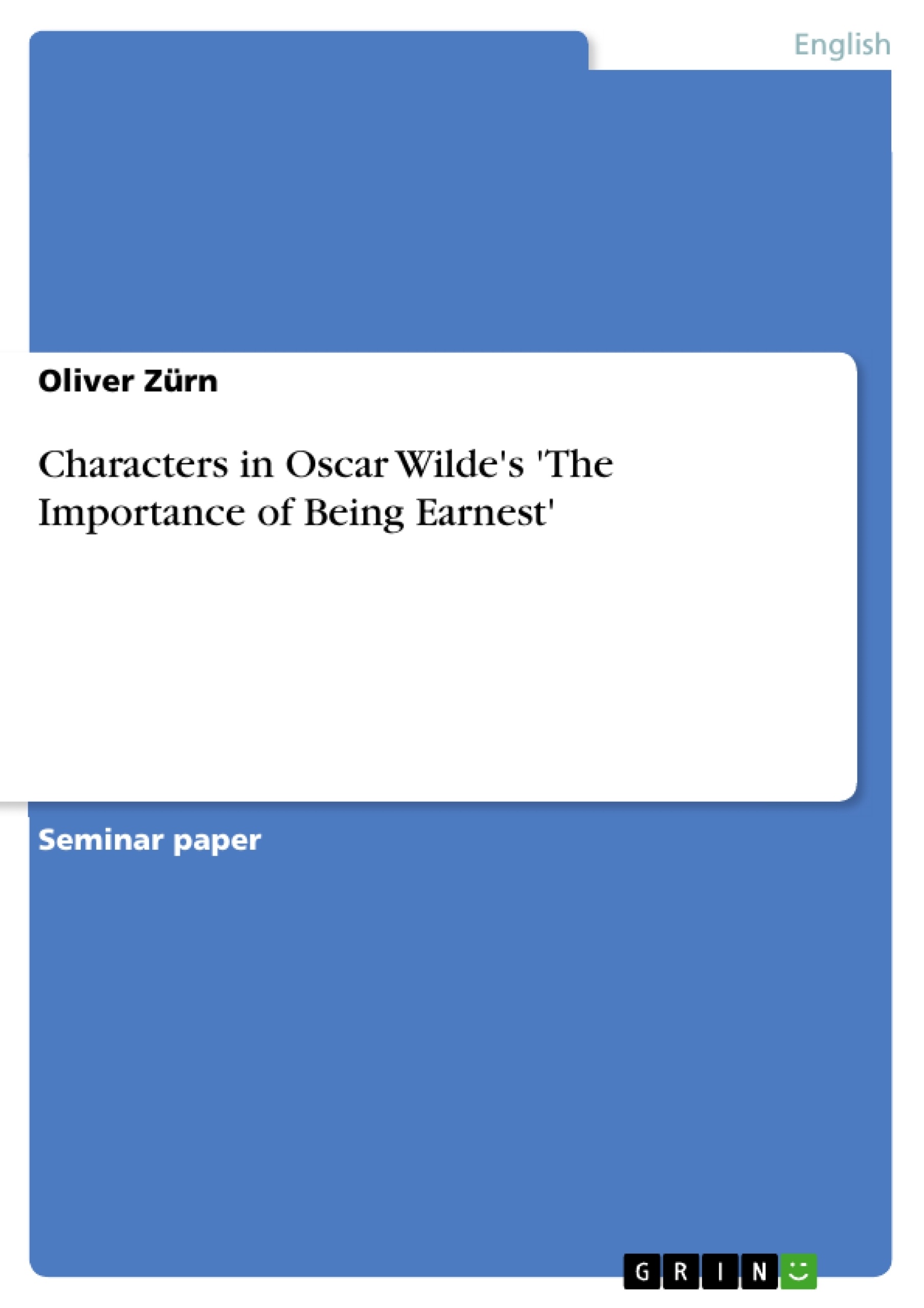WhenThe Importance of Being Earnestwas first performed on 14th of February 1895 in St. James’s theatre, it was a huge success and one of the actors said: “In my fiftythree years of acting, I never remember a greater triumph than the first night ofThe Importance of Being Earnest.The audience rose in their seats and cheered and cheered again.” (Quoted in Bird 1977, 164) Of course, the first one who extoled the play was Oscar Wilde himself: “the first act is ingenious, the second beautiful, the third abominably clever.” (Quoted in Kohl 1980, 412) Indeed, it is his masterpiece orposthumously - most sucessful play and has enjoyed most revivals up to the present day.
However, the play is not only “good fun” (Reinert 1956, 153), Wilde put also a philosophy in it, as he explained: “That we should treat all the trivial things of life very seriously, and all the serious things of life with sincere and studied triviality.” (Quoted in Eltis 1996, 171) Furthermore, in the play’s subtitle “A Trivial Comedy for Serious People” he directly addressed the mainly upper-class audience of his time and there is maybe no better or more appropriate expression than “serious” or “earnest” to describe Victorianism or the Victorian society. (cf. Kohl 1980, 421) Hence, the play may help us to understand the society at Oscar Wilde’s time.
Although the play’s performance is realistic or naturalistic, i.e. the characters are dressed in contemporary dresses and look exactly like the audience at that time, there must be a reason why a hundred years later we can still laugh about this great farce and wonderful social satire. Maybe the wide range of themes (marriage, love, money, religion, birth and so on)1or the character’s peculiarities and follies helped the play to remain up-to-date.
But with what kind of characters did Oscar Wilde on the one hand amuse and entertain his audience, on the other hand criticize and satirize spectators and society he lived in? How do the character’s follies shed light on the Victorian society at the end of the 19th century?
Table of Contents
- The serious people in Oscar Wilde's trivial comedy
- Oscar Wilde and his work
- Characters
- Lane and Merriman
- Algernon Moncrieff
- John Worthing
- Lady Bracknell
- Gwendolen Fairfax
- Cecily Cardew
- Miss Prism
- Reverend Canon Chasuble
- Oscar Wilde's good society
Objectives and Key Themes
This text provides an analysis of Oscar Wilde's play, The Importance of Being Earnest, focusing on the play's characters and their portrayal of Victorian society. The text explores how Wilde uses humor and satire to critique the social norms, values, and follies of his time.
- The role of satire and humor in exposing social hypocrisy
- The portrayal of Victorian characters and their societal constraints
- The exploration of themes like marriage, love, and social status
- The connection between Wilde's personal life and his artistic work
- The enduring relevance of Wilde's play in contemporary society
Chapter Summaries
- The serious people in Oscar Wilde's trivial comedy: This chapter introduces the play The Importance of Being Earnest, its background, and its enduring success. It highlights Wilde's philosophical approach to the play, focusing on the contrast between trivial things treated seriously and serious things treated with triviality. The chapter then explores how the play reflects the Victorian society and why it remains relevant even today.
- Oscar Wilde and his work: This chapter focuses on the life and work of Oscar Wilde, providing background information on his upbringing, education, and his rise to fame. It delves into his aestheticism, his social circle, and his literary output, including his fairy tales, critical essays, and his first successes as a playwright. The chapter concludes with a brief overview of Wilde's downfall due to his homosexuality and the resulting societal ostracism.
Keywords
Key terms and concepts explored in this text include Oscar Wilde, The Importance of Being Earnest, Victorian society, satire, humor, social hypocrisy, marriage, love, social status, aestheticism, homosexuality, and societal constraints.
- Quote paper
- Oliver Zürn (Author), 2005, Characters in Oscar Wilde's 'The Importance of Being Earnest', Munich, GRIN Verlag, https://www.grin.com/document/57244




